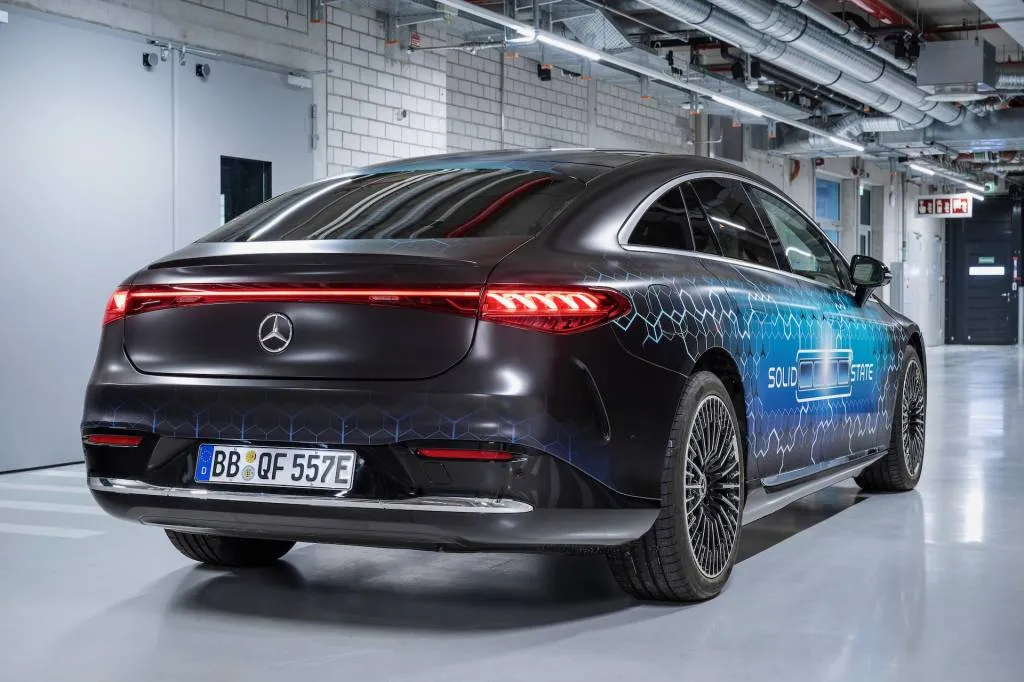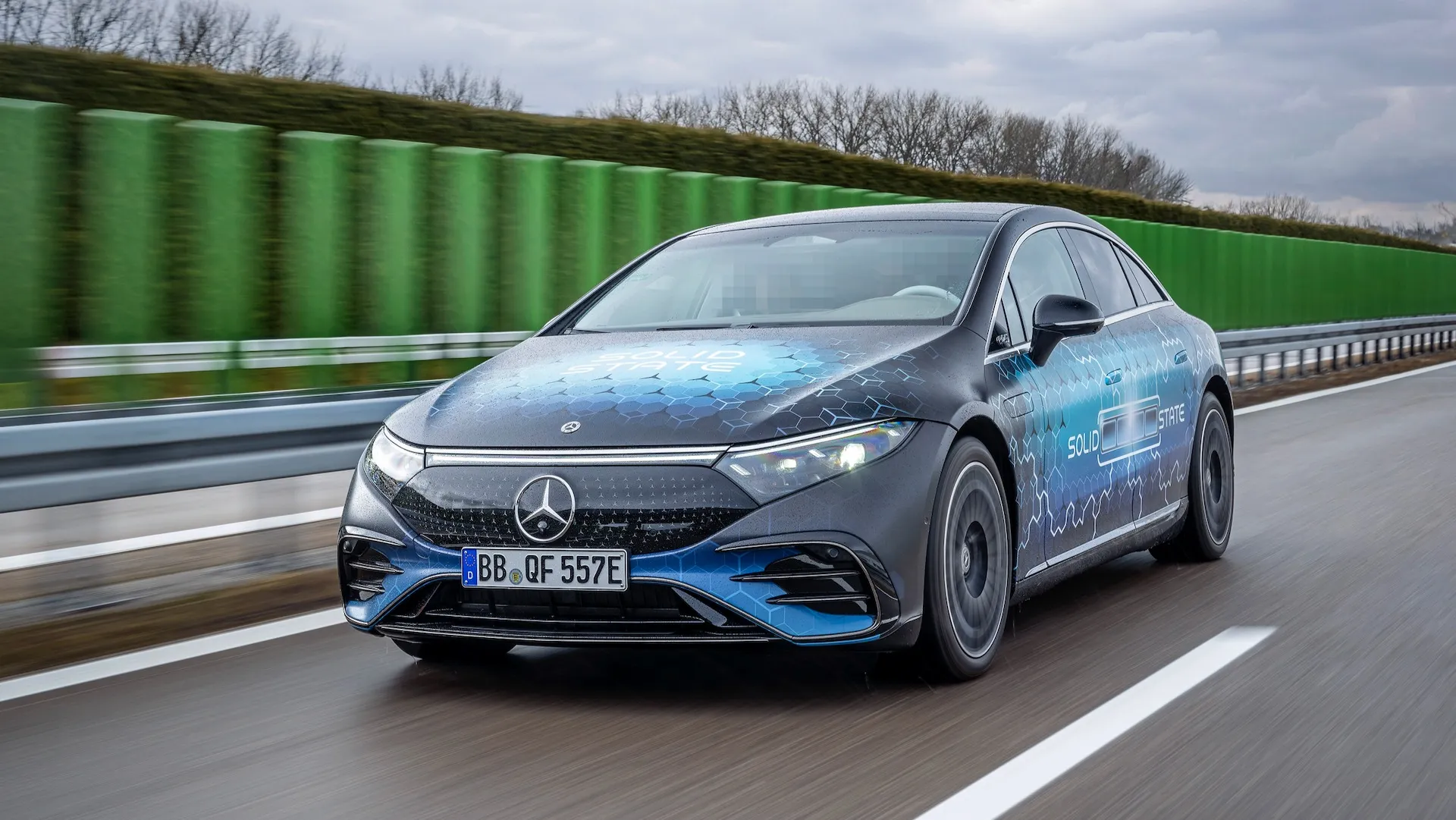Mercedes-Benz on Monday announced the start of real-world testing of prototype solid-state battery cells from the U.S. firm Factorial.
These cells were installed in a Mercedes-Benz EQS sedan in late 2024, and the car has been used in laboratory tests since then, according to a Mercedes press release. The automaker now claims the EQS is ready for road-testing—and that it could achieve up to 621 miles of range (1,000 km, on an unconfirmed drive cycle) with solid-state cells.
Mercedes-Benz EQS solid-state battery prototype
That range is possible mainly due to the solid-state cells’ increased energy density. Mercedes claims these cells allow for 25% more energy (and range) for the same weight and dimensions of the standard EQS battery pack. Passive battery cooling, such as what was used in the Mercedes EQXX engineering concept, will also help lower weight and increase efficiency.
Developed with input from Mercedes’ Formula 1 powertrain unit, the EQS test vehicle’s battery pack uses a new floating cell carrier, with pneumatic actuators that compensate for expansion and contraction of the cells as they charge and discharge, respectively.

Mercedes-Benz EQS solid-state battery prototype
The partnership between Mercedes and Factorial goes back to 2021. Factorial began providing test cells to Mercedes (as well as Stellantis) in 2022, and in 2024 appeared confident that its cells could boost Mercedes EV range by up to 80%. The Massachusetts-based battery firm has also opened what it claims is the largest U.S. EV solid-state battery plant yet in a Boston suburb. But that plant—with which aims Factorial aims to eventually produce up to 200 gigawatt-hours of batteries annually—is still small compared to conventional battery plants.
Mercedes will continue its testing in the laboratory and on the road over the next few months, but it may lead to a commitment to use solid-state cells in production vehicles. And if they are commercialized, a new micro-converter also being developed by the automaker plus some extra cooling-system innovation might allow them to be mixed with other cell types in the same EV battery pack.
Read the full article here




